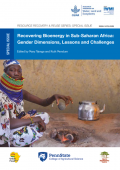
This publication focuses on the management of the nexus of energy, food and natural resources in sub-Saharan Africa, with a clear focus on gender roles and implications. It presents case studies that showcase a range of options available to improve biomass use, especially in locations and among populations who currently depend on conventional fuels like firewood or charcoal. Although many of these options are context specific, the provided examples demonstrate that generalizable options exist to improve energy access, reduce waste, protect our soils and empower women.
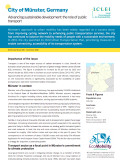
This report features how Münster, Germany, is developing a people-centered transport system, with efforts to improve accessibility, connectivity, inclusivity, and sustainability.
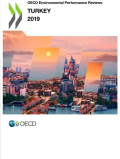
This environmental performance review shows that while Turkey's strong economic growth has been relatively decoupled from air emissions, energy use, waste generation, and water consumption, the country still faces many environmental challenges.
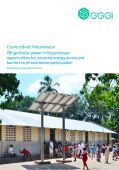
This country brief describes the significant role that the off-grid solar power sector could play in meeting Mozambique's universal electricity access goal and provides a structured overview of the key barriers hindering private sector participation for scaling-up the sector as well as recommendations to address the identified barriers.
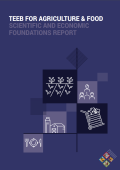
The TEEB for Agriculture and Food: Scientific and economic foundations report addresses the core theoretical issues and controversies underpinning the evaluation of the nexus between the agri-food sector, biodiversity and ecosystem services and externalities including human health impacts from agriculture on a global scale. It argues the need for a 'systems thinking' approach, draws out issues related to health, nutrition, equity and livelihoods, presents a Framework for evaluation and describes how it can be applied, and identifies theories and pathways for transformational change.
